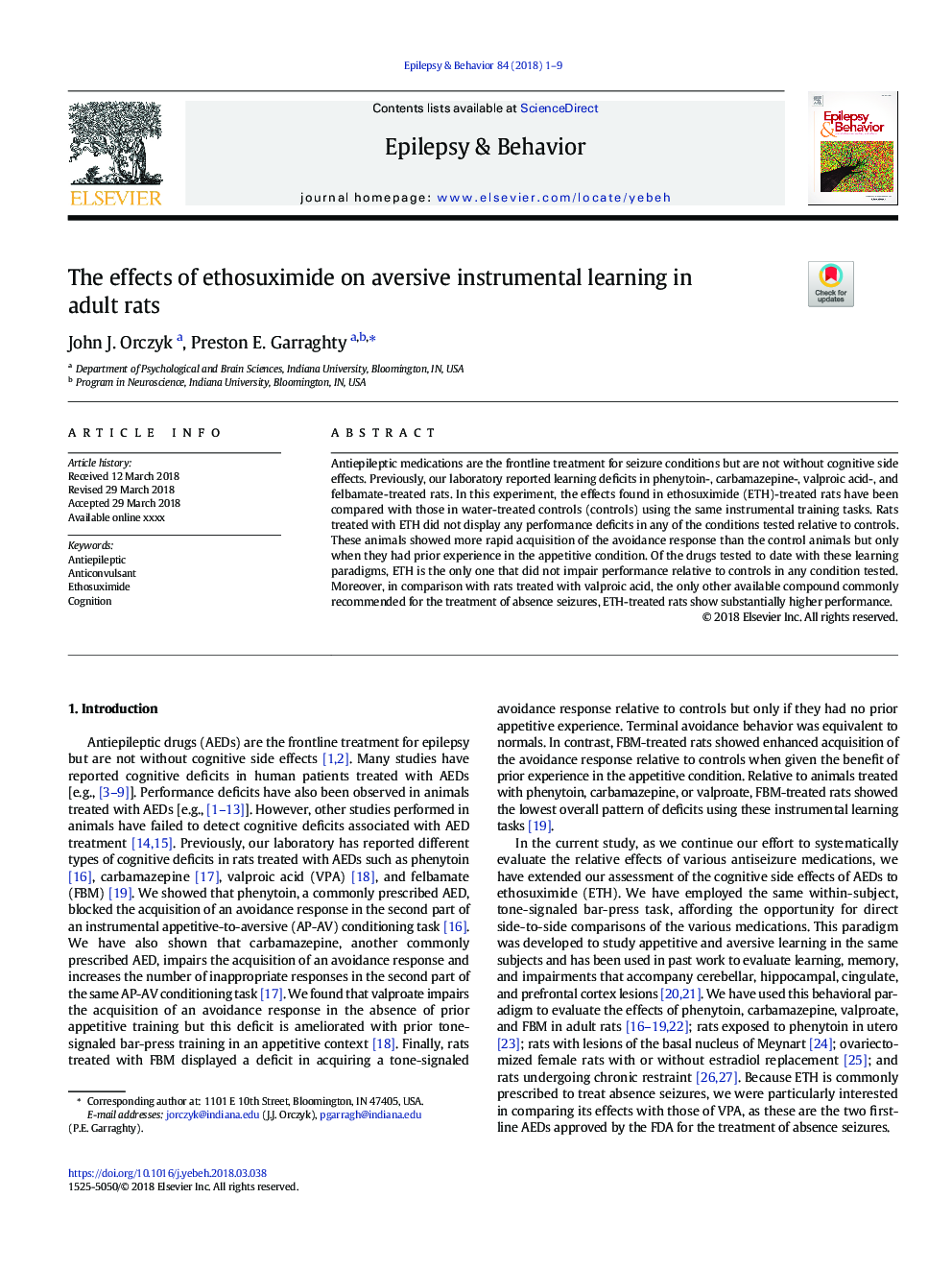| Article ID | Journal | Published Year | Pages | File Type |
|---|---|---|---|---|
| 8683534 | Epilepsy & Behavior | 2018 | 9 Pages |
Abstract
Antiepileptic medications are the frontline treatment for seizure conditions but are not without cognitive side effects. Previously, our laboratory reported learning deficits in phenytoin-, carbamazepine-, valproic acid-, and felbamate-treated rats. In this experiment, the effects found in ethosuximide (ETH)-treated rats have been compared with those in water-treated controls (controls) using the same instrumental training tasks. Rats treated with ETH did not display any performance deficits in any of the conditions tested relative to controls. These animals showed more rapid acquisition of the avoidance response than the control animals but only when they had prior experience in the appetitive condition. Of the drugs tested to date with these learning paradigms, ETH is the only one that did not impair performance relative to controls in any condition tested. Moreover, in comparison with rats treated with valproic acid, the only other available compound commonly recommended for the treatment of absence seizures, ETH-treated rats show substantially higher performance.
Related Topics
Life Sciences
Neuroscience
Behavioral Neuroscience
Authors
John J. Orczyk, Preston E. Garraghty,
